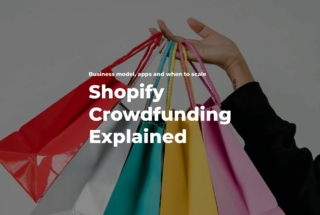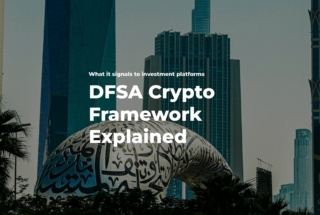Best Blockchain Infrastructures for Alternative Investing Platforms
No time to read? Let AI give you a quick summary of this article.
The interest in blockchain technology is growing, with many businesses exploring the possibilities of using blockchain to facilitate their operations and make all the processes more transparent. Alternative investing platforms are not an exception as blockchain is believed to provide transparency, efficiency, and security.
Blockchain in alternative investing is frequently regarded as a solution that would democratize crowdinvesting and allow platforms and investors to collaborate. However, with the growing hype and misinformation, it’d be better to have an unbiased look at the actual blockchain solutions and see what they can offer.
Here, we will explore possible blockchain applications for investment and crowdfunding platforms as well as consider pros and cons of blockchain solutions that may be important when moving your crowdinvesting business to blockchain.
What you will learn in this post:
Types of blockchains
There are three main types of blockchain networks, depending on whether you want more privacy and control or more interoperability and accessbility:
- Public
- Private
- Hybrid
Each of them has its pros, cons, and ideal use cases.
Public blockchains
The very first representative of public blockchains is the Bitcoin blockchain. It was launched in 20091 and introduced more security and transparency. Initially, blockchain was used only for cryptocurrencies and recording operations with them. Only in 2013 when the Ethereum blockchain was launched, Bitcoin blockchain expanded its reach beyond cryptocurrencies.
All data on a public blockchain is not stored in a single place but is distributed across the entire peer-to-peer network, this is why such blockchains are also called distributed ledgers.
Public blockchains are not restrictive, anybody can join them and become an authorized node to validate transactions, access past and current records, or build applications.
Some of the PROS of public blockchains include:
- Decentralization – there is no central authority that manages a blockchain.
- Transparency – all operations can be viewed by all network participants.
- Security – no records can be changed or eliminated, so public blockchains are secure.
However, public blockchains also come with a set of CONS:
- Scalability – public blockchains do not scale properly
- Speed – public blockchains don’t limit user access this is why their operations may slow down when a lot of people use it simultaneously.
- Risk of a 51% attack – when an organization gains 51% more computing power, it can alter the entire blockchain.
Public blockchains are perfect for organizations that rely in their operations on transparency and trust such as non-profit organizations, charities, social support groups, and others, and thus, this blockchain type is more suitable for donation-based crowdfunding platforms2. Because of the public nature of such blockchains, private businesses may want to steer clear.
The development cost of a platform on a public blockchain may vary from $2,000 to $200,0003 depending on the platform’s functionality, location, and the expertise of developers.
Top public blockchains
Ethereum

Ethereum4 is the leader among blockchains that support smart contracts and dApps development. The network switched to proof-of-stake consensus which reduced energy consumption by more than 99%5, and a further Dencun upgrade6 reduced gas fees for Layer-2 solutions and increased the transaction processing speed to 100,000 transactions per second. These upgrades eliminated the most criticized aspects of the network and set all Ethereum competitors behind by making it again the top blockchain for developers.
Etherium app development costs
Developing and deploying a smart contract on Ethereum costs somewhere between $500 and $5,0007 and more depending on its complexity. Developing a simple dApp would cost $45,000 – $65,000. The further maintenance cost is normally 10-15% of the project cost. Add gas fees that vary from 17 to 21 Gwei ($1.11 – $1.31) per transaction, and you will calculate the approximate expenses of moving to the Ethereum blockchain and running a business on it.
Solana
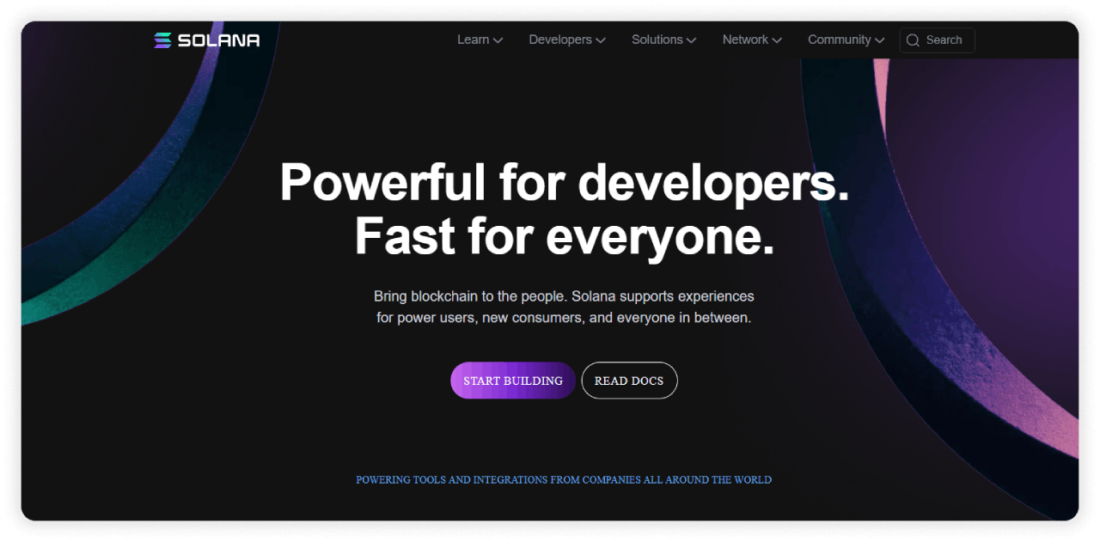
Solana is another popular blockchain with over 50% of investor interest8. With a transaction processing speed of over 700,000 transactions per second9, Solana is a good option for launching a blockchain-based crowdinvesting platform.
Solana app development costs
Developing a smart contract or a dApp on the Solana blockchain costs approximately the same as doing so on the Ethereum blockchain. For one transaction, Solana charges on average approximately 0.000116259 SOL10 which is literally a fraction of a cent. This is why even though the average cost of developing a blockchain-based platform on Solana would be similar to Ethereum, lower fees, in the long run, would affect the business positively.
Tezos
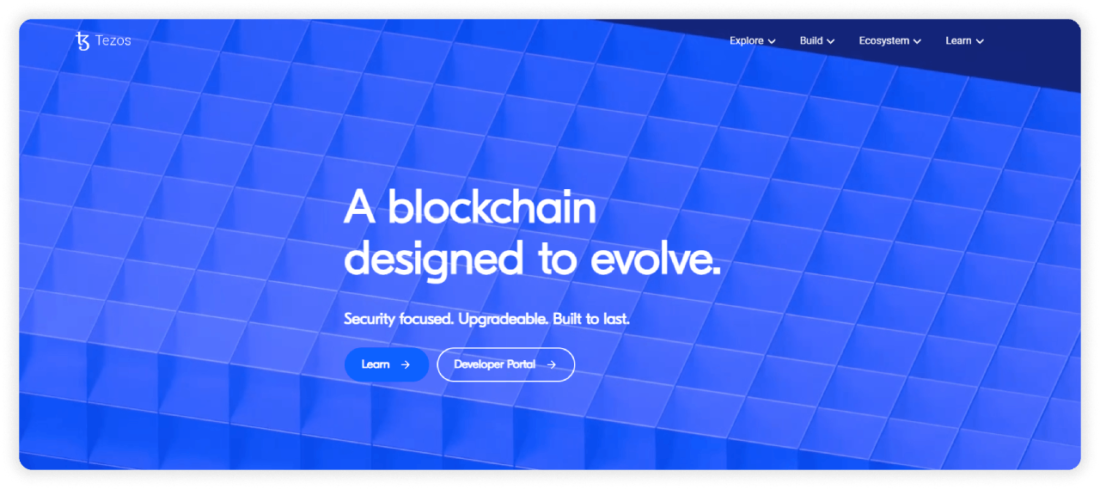
Tezos11 is another popular public blockchain used for smart contracts and dApps development and deployment. With a transaction processing speed of 1 mln, Tezos is a good alternative to other popular public blockchains.
Along with the smart contract deployment and maintenance cost, you shall count on an average transaction fee of $0.0112.
Private blockchains
A private blockchain is a network that works in a restrictive environment and is controlled by a single entity which also provides computing power for the blockchain’s operations. It operates similarly to a public blockchain in the matters of peer-to-peer transactions, however, private blockchains are normally much smaller than public networks.
PROS of private blockchains include:
- More control: the controlling organization sets permission levels, authorizations, and accessibility, and is responsible for implementing security measures.
- Limited access: only approved people of groups can join a private blockchain.
- Fast transaction processing because there are fewer nodes that confirm transactions.
- More privacy: transactions on a private blockchain are not public which is essential for businesses with sensitive data or those operating in regulated industries.
CONS of private blockchains are:
- The source code is not available publicly, it inhibits users from viewing audits, bug fixes, and other changes.
- Interoperability limitations: private blockchains have trouble connecting to and working with other networks or using technologies created by other platforms.
- Security of a public blockchain depends on a smaller group of people which makes it more vulnerable compared to public blockchains.
Private blockchains are perfect for businesses that operate with asset ownership, copyright, and other data that shall not be accessed by the public, or businesses that operate in regulated industries. In this regard, public blockchains are good for launching a crowdinvesting or a peer-to-peer lending platform.
Best private blockchains
IBM Blockchain
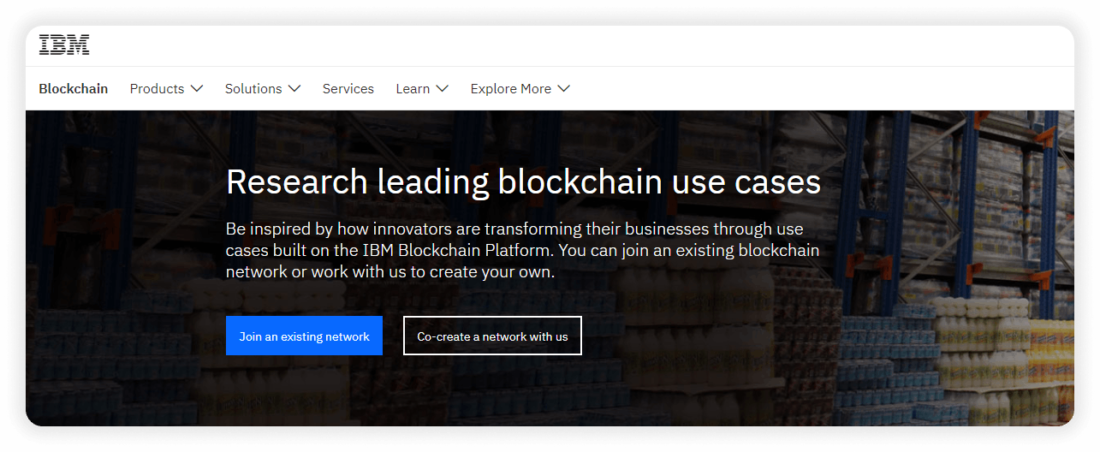
IBM Blockchain13 is one of the most popular private blockchains. It can be easily used to link the platform’s cloud and legacy technologies with the decentralized network. A clean user interface allows developers to set up, test, and deploy smart contracts relatively easily and rapidly.
IBM blockchain costs include $0.29 per virtual processor core (VPC) / hour14; the number of VPCs14 depends on the number of endpoints (physical devices that connect to the network) where the product is installed. So, for each node that confirms transactions, you’d need 1 VPC.
Hyperledger Fabric
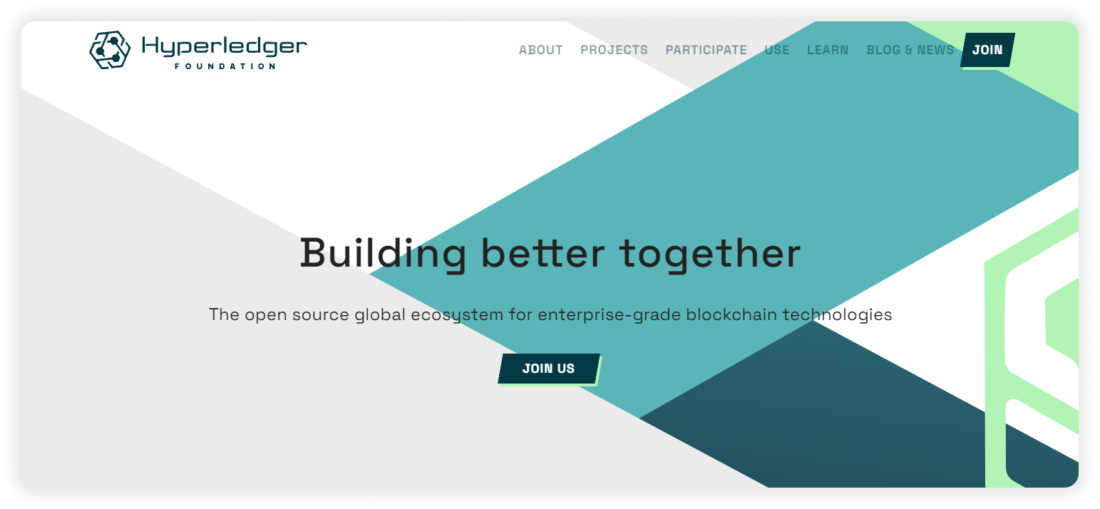
Hyperledger Fabric15 is a set of tools for creating blockchain-based applications. It was launched by the Linux Foundation with the enterprise distributed ledgers in mind. It offers businesses a rich set of components that can be plugged into an existing ecosystem, supports an open smart contract model, and can improve data privacy by isolating transactions in channels or sharing private data on a need-to-know basis16.
Hyperledger Fabric is supported by such leading cloud providers as IBM, Amazon Web Services, Google, Microsoft Azure, and Oracle.
The pricing varies greatly depending on the cloud service provider. For example, on Amazon, a managed blockchain network for Hyperledger Fabric consists of one or more members, and each member has peer nodes and local storage. The business is charged for the network membership, peer nodes, peer node storage, data records, and data transfer. For example, for an Amazon Managed Blockchain network with members from multiple AWS accounts with each member having two bc.m5.2xlarge peer nodes for high availability and performance, and each peer node has 500 GiB of storage, the cost break down looks like this:
- Network member cost: (1 Standard Edition member) x ($0.55 per hour) x (1 hour) = $0.55 per hour.
- Peer node cost: (1 member) x (2 m5.2xlarge peer nodes per member) x (0.615 per hour) x (1 hour) = $1.23 per hour.
- Peer node storage cost: (1 member) x (2 peer node per member) x (500 GiB storage per peer node) x ($0.10 per GB-month) x (1 hour) = $0.139 per hour.
- Data written cost: (1 member) x (100 MB per hour) x (0.10 per GB) = $0.01 per hour.
Total production network hourly cost: $1.93
Hybrid blockchains
A hybrid blockchain combines elements of private and public blockchains. It allows a business to control who can access specific data and which data can be made accessible to be viewed publicly. Transactions and records are not made public but may be verified when needed by viewing a smart contract. Thus, information is not visible to anyone but is still verifiable.
PROS of hybrid blockchains include:
- Security: a hybrid blockchain is managed by one provider, so external hackers cannot take control over the blockchain and alter transactions.
- Better communication: Allows communication with other parties.
- More privacy
- Higher scalability
- Fast transaction processing
CONS of hybrid blockchains include:
- No complete transparency, some information may be shielded.
- Upgrades are up to the company maintaining the blockchain.
Hybrid blockchains are good for businesses that have to show some data while shielding other information. For example, for platforms involved in real estate investing, a hybrid blockchain would make it possible to show listings while running the ecosystem privately. Also, platforms working with peer-to-peer lending would benefit from using a hybrid blockchain.
XinFin – enterprise-grade hybrid blockchain
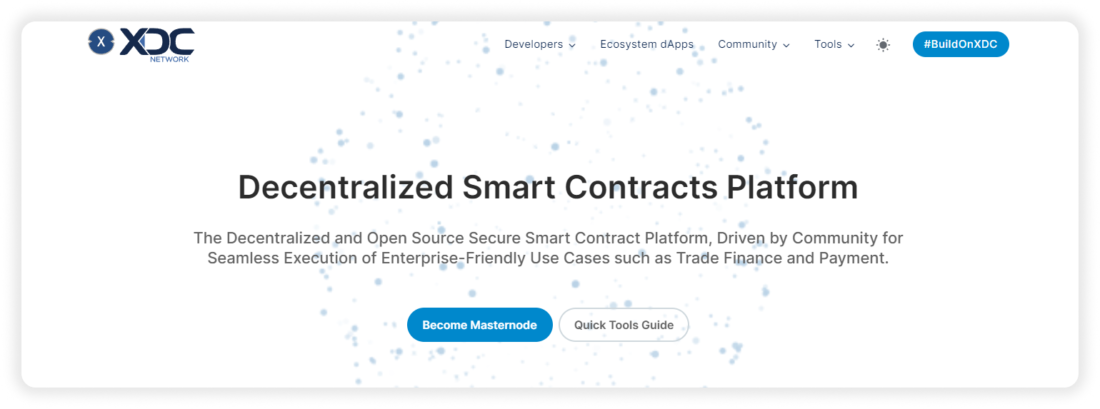
The XinFin blockchain17 is an enterprise-grade hybrid blockchain that enables digitization and tokenization, instant settlements of transactions and ensures top data security.
With a capacity to process 2,000 transactions per second and interoperability with other leading networks and solutions including Corda, XinFin is a good solution for businesses dealing with finance.
XinFin offers a set of already developed smart contracts, you need only to choose those that you would want to deploy, and proceed with deploying them on the network. The transaction fee is $0.01 which is very low.
Launch a blockchain-based crowdinvesting platform with LenderKit
Building a crowdfunding or investment platform powered by blockchain is no different from any other investment app development project.
As with any investment platform, you need to make sure that it complies with the regulations valid in the region where the platform will operate. For example, tokenized real estate investment platforms may be registered under the Reg D in the US, while firms in Europe need to comply with MiCA.
Additional considerations when building your blockchain crowdfunding platform may include hiring smart contract developers and other specialists to build, launch, and maintain your crowdinvesting platform.
If you want to launch an investment platform with fiat currencies and build on top of it to add blockchain functionality with the help of our partners, you can consider white-label investment software from LenderKit. Fill in the contact form to discuss your next project with our fintech specialist.

Article sources:
- History of blockchain | Technology | ICAEW
- PDF (https://www.irjmets.com/uploadedfiles/paper/issue_5_may_2023/39833/final/fin_...)
- $2,000 to $200,000
- Ethereum.org: The complete guide to Ethereum
- Ethereum's energy usage will soon decrease by ~99.95% | Ethereum Foundation Blog
- Ethereum Finalizes 'Dencun' Upgrade, in Landmark Move to Reduce Data Fees
- Blockchain Cost: Key Factors & Budgeting for Development
- Solana Ecosystem Now Accounts For Nearly 50% Of Crypto Investor Interest In Chain-Specific Narratives - Report | Crowdfund Insider
- 700,000 transactions per second
- Solana Fees + Burn Tracker - Why Are Solana's 'Gas' Fees For Transactions So Low?
- Home | Tezos
- 404 - Page not found
- IBM
- Virtual processor core (VPC)
- Hyperledger Fabric
- Permissioned vs. permissionless blockchains: Key differences | TechTarget
- Decentralized Smart Contracts Platform


